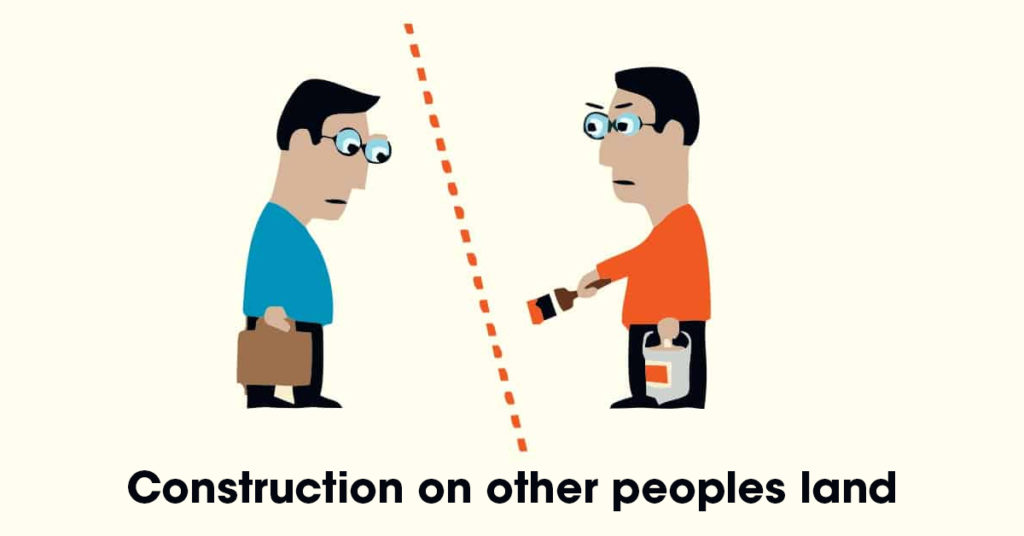ALTHOUGH it seems somewhat strange, there are quite a few situations in which a property is built, sometimes by mistake and in good faith and sometimes on purpose and knowing it, on land owned by someone else without their permission.
This can occur in different situations such as for example;
- When someone buys a plot of land thinking that it has a specific surface and shape and that is not the case, because they have been given incorrect information, or the cadastral plan does not correspond to the reality and the person ends up building by error, part or all of the construction on a neighbour’s plot.
- Couples, partners, friends, family, who may have built on ground that belongs to the other. For example a couple who decides to build their holiday home obtaining money from one of them (a non-owner), on the others land (who is deemed the owner).
- Cases where the same land is registered by mistake and in duplicate in the Land Registry and there are therefore two owners and two different registry numbers for the same plot, which is called double registration.
If one of them builds on the land, but it is later determined by a judge that the one with best right and therefore the rightful owner is the other person, then the one that built the property will be judged as having built it on another person’s plot.
There are other cases as well which make the possibility of building on another person’s land more common than one would expect.
Legal Regulation The construction on foreign soil or land is regulated in the Spanish civil code, mainly in articles 358, 361 and 362 of the civil code, and according to these articles one must take into account;
Article 358 which says that in principle what has been built on someone else’s land belongs to the land owner. This is the general principle, although legally there are some other elements and circumstances that must be considered, as we will see below.
Article 361 introduces the concept of GOOD FAITH, in such a way, that if the person who built on another’s land did so in good faith, then the landowner must choose between:
- Keeping for themselves the work done (i.e. construction) but they must pay compensation to the person who undertook the work in an amount determined in the Spanish civil code itself, or
- The landowner could force the person who built the property to pay a commercial price for the land.
If however the person who built on the land, did it in bad faith (i.e. they knew who owned the land), then according to article 362, they will forfeit what has been built without any right to compensation.
Compensation: The compensation that the person who built in good faith on land that they believed was their own, can claim compensation and details are included in articles 453 and 454 of the Civil Code, which effectively allow them to reclaim the costs of necessary or useful work undertaken, but not for anything that may be considered pure luxury or unnecessary.
Conclusion: For all that has been said, the rights that one can claim if one has built on someone else’s land, will depend in the first place on whether they have acted in good or bad faith.
Also the details of expenses that have been incurred will be taken into account to decide if they are useful or luxury expenses.
For practical purposes, it will be essential to be able to prove the expenses paid by presenting corresponding invoices from builders, suppliers, etc.
Therefore, before acquiring a property in Spain or carrying out a construction on your own, it is necessary that you make sure that a proper study and due diligence is done by your lawyer in order to minimise the possibility of being caught in such a situation, and that if so, it may be sufficient to prove that you acted in good faith.
If you wish to receive expert legal advice in this area, contact us and we will help you.
The information provided in this article is not intended to be legal advice it simply transmits information related to legal issues.
Carlos Baos (Lawyer)
White & Baos
Tel: +34 966 426 185
E-mail: info@white-baos.com
White & Baos 2019- All Rights Reserved.
